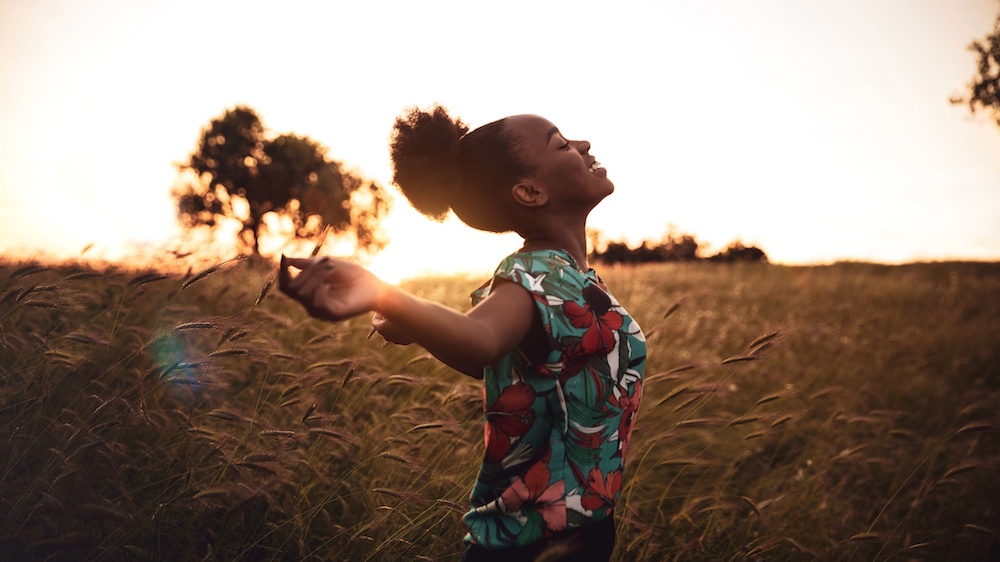If you’re interested in sharing your opinion on any cultural, political or personal topic, create an account here and check out our how-to post to learn more.
____
Growing up in Jackson, Mississippi, my family instilled an innate sense of sustainability in me – conserving water, turning off the lights when not needed, reusing grocery bags and wearing hand-me-down clothes.
I grew up in a Black community, where we shared sugar and eggs with my neighbors and carpooled to the grocery store together. When you live in an under-resourced community, you show up for one another in the time of need. It was this kind of care that allowed me to see that my community is and has always been natural caretakers of the planet and of each other.
The climate movement is deeply intersectional; it’s more than sea level rise and forest conservation — it’s about labor and workers, it’s about food justice, it’s about transit, it’s about public health and housing, and it’s about accessibility to resources.
This week is Black Climate Week, an annual event where we celebrate Black leaders and organizations who are leading the fight against the climate crisis. Black communities, amongst Indigenous, immigrant and other communities of color, are the most impacted by the climate crisis. Due to historic decisions such as redlining, they live in areas closer to toxic facilities, lack equitable access to resources and reap the consequences of structural inequities. Despite these challenges, Black communities are also at the forefront of creating the most intersectional climate justice solutions that are tackling a multitude of issues.
However, these movement leaders have been historically excluded and Black Climate Week aims to change that. That’s why this year, we’re honoring the climate justice solutions rooted in Black history.
The 14 organizations being honored this Black Climate Week are teaching us how to tackle the crisis while also addressing systemic changes. From securing land reparations to healing the trauma Black communities have had with America’s rural spaces, these organizations are showing up in solidarity for each other and for the global community.
It’s an honor to share the great work of this year’s Black Climate Week honorees:
– In Highland Park, Michigan, Soulardarity is building economic justice and energy democracy. They are installing off-the-grid solar-powered streetlights that also offer community Wi-Fi, organizing bulk purchases of affordable solar equipment, and advocating for community-owned clean energy.
– Blacks in Green (BIG) is turning Emmett and Mamie Till-Mobley’s home into a museum to honor and share the family’s story in the context of the Great Migration, when six million Black Americans moved away from the Jim Crow South and built thriving communities in Northern cities. The home is the heart of BIG’s Sustainable Square Mile effort to facilitate a green, self-reliant, walkable community lived in and owned by Black people.
– The Descendants Project is working to secure land reparations for the descendants of enslaved people and also fights against polluting industries in “cancer alley,” where some 150 petrochemical plants and oil refineries are causing communities of color detrimental harm. The organization is helping to heal and flourish Black communities.
At The Solutions Project, we believe and recognize that local communities have the vision and capacity to solve the myriad of issues we are facing – and we are seeing it in real-time. That’s why we support and amplify their work through our grant-making program and communications initiatives.
We launched Black Climate Week in 2021 to celebrate Black leadership in the climate movement. In addition, we wanted to draw attention to the under-representation of Black, Indigenous and other movement leaders of color at major climate conferences, such as Climate Week NYC, where corporate decision-makers and policymakers have a track record of discussing a just transition without listening to communities on the ground.
We are in the midst of a racial reckoning, a global pandemic and a transition economy with higher rates of poverty. The confluence of these issues highlights the realities of the disproportionate impacts within low-income communities and communities of color. What gives me hope is knowing that these are also the same frontline communities creating solutions that address the root of the cause of these inequities — capitalism, patriarchy and white supremacy.
We cannot call for a greener and better planet without also demanding racial justice, and Black communities across the U.S. know this. That’s why they are creating Black history and reimagining Black futures every day by innovating solutions that are rooted in intergenerational learning and wisdom.
Learn more about Black Climate Week honorees on Instagram and Facebook.
